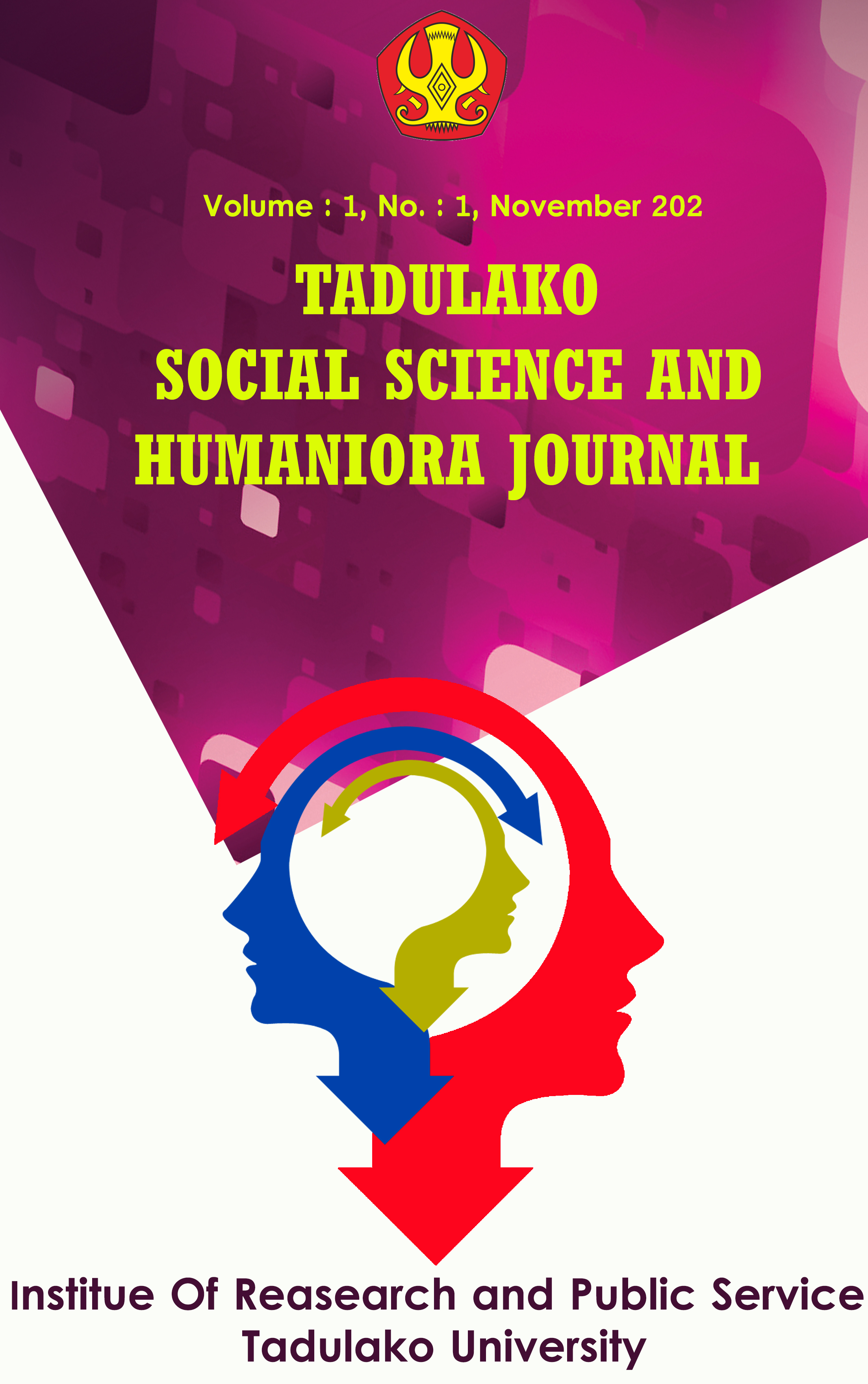Main Article Content
Abstract
Foreign culture has become an important part of the inhabitants of a country.They must do effective communication to establish cooperation with others. This study aims to determine how the forms of cultural commotion experienced by foreign students at Tadulako University, and to determine the role of communication carried out by foreign students in overcoming the culture commotion. The type of research used wasqualitative with the case study method. Data were obtained by conducting observation and in-depth interview. The technical analysis of the data used in this study wasan interactive model of analysis. Based onthe four phases ofculture shock, the level of culture shock wasthe most influential phase in the communication process which included intercultural communication in the form of culture shock experienced by foreign students at Tadulako University.It wasthe phase of cultural problems (culture shock) in terms oflanguage, food, environment (including weather, housing, and academics), characteristics ofpeople ofPalu, religion, and Indonesian culture. Intercultural communication plays an important role in overcoming miscommunication between foreign students and students of the University of Tadulako, because intimacy between fellow foreign students and students of the University of Tadulakocan be established through communication, making it easier for different cultures to understand and appreciate each other.Thus,familiarity began to form, such as an awareness to open up more than before by which the foreign students and Tadulako University students could understandtheir interlocutors, find solutions to be able to communicate more effectively and know how to act to avoid miscommunication.
